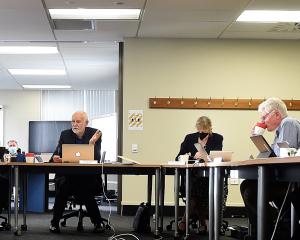Health Minister Tony Ryall has approved the Southern District Health Board's district annual plan with its $14.9 million deficit but wants to see more progress towards eliminating the deficit.
The board, which expects $808.4 million in revenue this financial year, says it is spending beyond its means on community services for the elderly, community medicines and locums at Southland Hospital.
In his executive summary of the district annual plan, chief executive Brian Rousseau warns that while the board's goal remains maintaining access to the existing range of services, keeping the same access to those services, apart from elective surgery, will not be possible.
He said the board was still considered to be overfunded, according to the population-based funding formula, by $12.3 million.
In his letter of approval, Mr Ryall said he and the Minister of Finance, Bill English, were concerned about this year's deficit.
The rate of "transformational change, and, in particular, the efficiencies and cost savings that the DHB is planning, do not provide a clear pathway to financial sustainability".
His approval was granted for one year.
Initial figures presented to the minister and rejected showed a deficit for this year of $18.4 million, decreasing to $9.6 million by 2012-13, but Mr Ryall has made it clear he expects the board to break even by 2013-14.
The board is working with the National Health Board to develop a plan to tackle the deficit and the approved plan contains no predictions.
Mr Ryall said he had concerns with the board's performance in some health targets, home support services, regional planning and the level of clinical engagement in service planning.
"Please ensure that you manage these concerns appropriately."
His approval was conditional on the board making significant progress on transforming models of care.
It is understood this would include such things as changes to rural hospital services, development of integrated family health centres, moving some hospital services to the community and supporting the elderly to remain at home.
Mr Rousseau said the board would have to embark on local and regional service configuration changes to keep staff numbers affordable, but did not give details.
In the area of spending for elderly in the community, the board said by the end of last financial year its spending was about 16% higher than the national average per head of the elderly population.
The plan noted the board still had above average use of residential care.
While efforts would continue to reduce relative expenditure in the short term, the challenge was to develop and provide financially sustainable services for the elderly.
Among plans were continued revision of access criteria for all support services and developing services allowing people to stay in their own homes longer.
Advertisement













